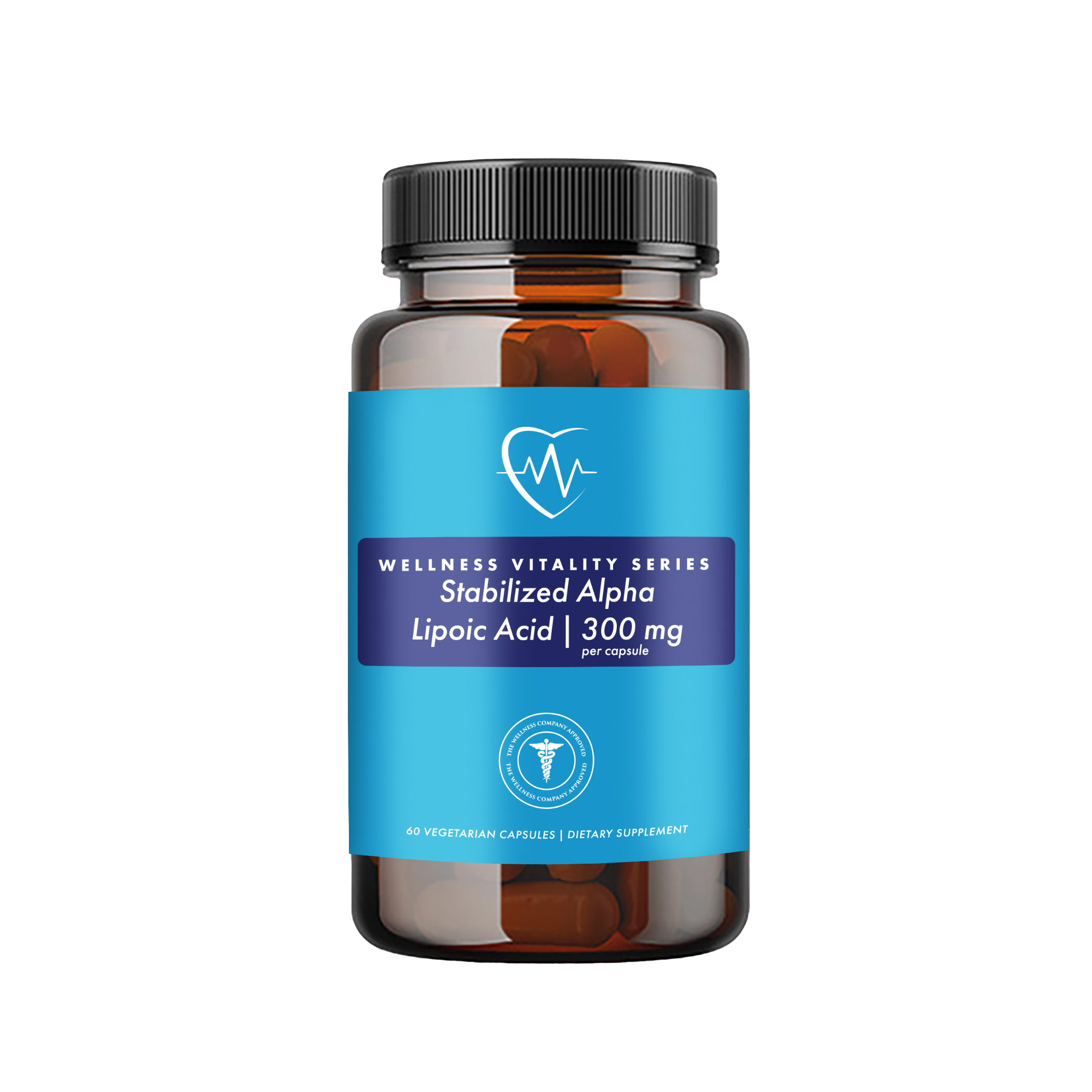The Many Benefits of R-Alpha Lipoic Acid Supplementation

Benefits of R-Alpha Lipoic Acid
Antioxidant Effects"Antioxidant" is a general term for compounds which counteract unstable molecules called free radicals that cause damage to cells, including our DNA. The body generates free radicals in response to environmental insults, such as tobacco smoke, air pollution, and exposure to harmful chemicals. Free radicals accelerate the aging process and contribute to illnesses such as cancer and heart disease. As such, antioxidants like ALA have been touted as an effective way to oppose these detrimental biological processes.
Antiviral Effects
R-ALA has been shown to decrease levels of viral replication and optimize the body’s antioxidant defense system. It represents a feasible therapeutic avenue for reducing the severity of symptoms from viral infections. Additionally, it can modulate the course of infection by acting as a free radical scavenger, and dampening inflammation.
Anti-inflammatory and Immunomodulatory Effects
R-alpha lipoic acid may decrease inflammatory markers in the body and positively modulate mitochondrial function in the cells. It can aid in regulating the immune system and may be utilized to treat autoimmune diseases, including systemic lupus erythematosus, rheumatoid arthritis, primary vasculitis, and multiple sclerosis.
Heart and Circulatory Health
ALA may help improve circulation, thus exerting beneficial effects for individuals suffering from nerve damage, diabetes, and liver disease. The compound is also reported to improve endothelial dysfunction, which is a potential mechanism by which it decreases the risk of heart attack and stroke.
Brain Health
Oral R-alpha lipoic acid supplements are becoming increasingly popular due to their positive effects on reducing oxidative stress in the brain. Studies suggest this supplement may be associated with decreased risk for certain neurodegenerative diseases, such as Parkinson's and Alzheimer's.
Foods
The following foods are high in ALA:
- Broccoli
- Spinach
- Red meat
- Organ meat (such as liver, hearts, kidneys from beef or chicken)
- Brussels sprouts
- Tomatoes
- Peas
- Brewer’s yeast
- Beets
- Carrots
Safety of R-Alpha Lipoic Acid
ALA has been used to treat various illnesses for over 50 years, and toxicity risk is reported to be very low. Clinical trials with oral doses of ALA as high as 2,400 mg per day and intravenous doses of ALA up to 600 mg per day have showed no adverse effects.
As always, please consult with a trusted medical practitioner to ensure that R-alpha lipoic acid is suitable for you.
Learn more about The Wellness Company's high quality R-Alpha Lipoic Acid supplement approved by the TWC Medical Board.
References
Jones, W., Li, X., Qu, Z., Perriott, L., Whitesell, R. R., & May, J. M. (2002). Uptake, recycling, and antioxidant actions of alpha-lipoic acid in endothelial cells. Free Radical Biology & Medicine, 33(1), 83–93. Read
Harvard Health Publishing. (2019). Understanding antioxidants - Harvard Health. Harvard Health; Harvard Health. Read
Lobo, V., Patil, A., Phatak, A., & Chandra, N. (2010). Free radicals, Antioxidants and Functional foods: Impact on Human Health. Pharmacognosy Reviews, 4(8), 118–126. Read
Dragomanova, S., Miteva, S., Nicoletti, F., Mangano, K., Fagone, P., Pricoco, S., Staykov, H., & Tancheva, L. (2021). Therapeutic Potential of Alpha-Lipoic Acid in Viral Infections, including COVID-19. Antioxidants, 10(8), 1294. Read
Akbari, M., Ostadmohammadi, V., Tabrizi, R., Mobini, M., Lankarani, K. B., Moosazadeh, M., Heydari, S. T., Chamani, M., Kolahdooz, F., & Asemi, Z. (2018). The effects of alpha-lipoic acid supplementation on inflammatory markers among patients with metabolic syndrome and related disorders: a systematic review and meta-analysis of randomized controlled trials. Nutrition & Metabolism, 15(1). Read
Packer, L., & Cadenas, E. (2011). Lipoic acid: energy metabolism and redox regulation of transcription and cell signaling. Journal of Clinical Biochemistry and Nutrition, 48(1), 26–32. Read
Liu, W., Shi, L., & Li, S. (2019). The Immunomodulatory Effect of Alpha-Lipoic Acid in Autoimmune Diseases. BioMed Research International, 2019, 1–11. Read
Jones W., Li X., Qu Z., Perriott L., Whitesell R.R., May J.M. Uptake, recycling, and antioxidant actions of α-lipoic acid in endothelial cells. Free Radic. Biol. Med. 2002;33:83–93. Read
Ziegler D., Gries F.A. α-lipoic acid in the treatment of diabetic peripheral and cardiac autonomic neuropathy. Diabetes. 1997;46:S62–S66. Read
Khan, H., Singh, T. G., Dahiya, R. S., & Abdel-Daim, M. M. (2022). α-Lipoic Acid, an Organosulfur Biomolecule a Novel Therapeutic Agent for Neurodegenerative Disorders: An Mechanistic Perspective. Neurochemical Research, 47(7), 1853–1864. Read
Alpha Lipoic Acid - Health Encyclopedia - University of Rochester Medical Center. (2020). Rochester.edu. Read














